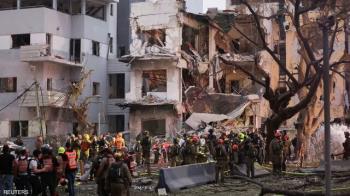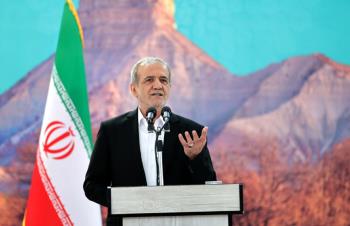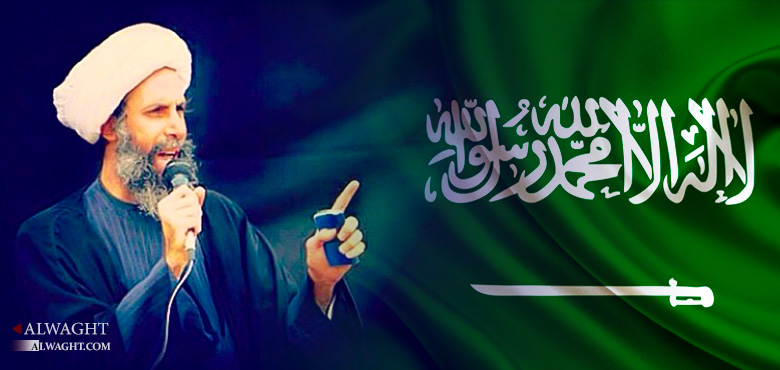Alwaght- When the Saudi regime announced the execution of Shiite Muslim cleric Sheikh Nimr Nimr, not only was it declaring Nimr’s death but also its own. Executing the religious figure, renowned for his outspokenness against the oppressive monarchy, was a message from Riyadh to the world.
Mixed Signals?
Amid international condemnation of Riyadh’s sectarian-motivated move, observers had assumed that Saudi Arabia was sending mixed signals.
The United Arab Emirates defended Riyadh’s move through its Foreign Minister Abdullah Bin Zayed al-Nahyan who claimed the event was a “clear message” from the kingdom against terrorism and inciters of strife.
Yet, these are the qualities of none other than the Saudi regime. Having accused Nimr of inciting strife when all he did was use his words to call for justice and an end to discrimination in the kingdom—words that inspired thousands during the 2011 uprising—is an act of hypocrisy. Killing Sheikh Nimr, in itself, is an inciting move as it constitutes the targeting of the minority Shiite group in the kingdom and a symbol of Islam worldwide.
At the same time, terrorism is what the Saudi regime does best. In Syria, there are thousands of Saudi-backed militants who are shedding blood in the name of Islam when they are only the followers of the extremist Wahhabi ideology. Funded and supported by the Saudi regime, these terrorists have wreaked havoc in Syria where the Saudis spread the seeds of terrorism, nurtured them, and watched them as they grew in to weeds.
In Yemen, the Saudi-led coalition is pounding a historic civilization, has destroyed much of the country, and hasn’t spared the lives of thousands of fighters and civilians alike.
For those who are not aware of Saudi Arabia’s atrocities, the signals might be mixed. But for those who are fully conscious of the Persian-Gulf state’s agenda, the message is crystal clear.
Clear Message
Internally, the message is distinct. Nimr’s death sentence is intended to inform anti-regime protesters of the consequences of their movement. The Saudi’s plan was to kill Nimr in order to a kill the ideas he spread, to kill any possible revolt against the ruling family’s suppressive and discriminatory policies. Setting Nimr’s execution as an example to other Saudi citizens calling for freedom and democracy, authorities sent a crystal clear message to the opposition: anyone who tries to continue the path of the revolution will meet a fate like Nimr’s.
Externally, the message vividly reflects on Saudi’s wars and foreign relations.
By executing Nimr, Riyadh signalled that its recent confrontational policy in the region will not abate. If anything, it is a sign of escalation. Directly and indirectly, the Saudis have been engaged in the most violent wars in the Middle East. The aggression against Yemen has been the most conspicuous. In tandem with the execution, Saudi authorities declared an end to a temporary truce in Yemen, leading many to link the two events to the country’s increasing violence--the side effects of which have inflicted many losses, both militarily and economically, on the country.
The Reply
Yet the Saudi regime’s two-fold message will not go about without a reply.
The Islamic Republic of Iran was quick to respond to the killing of the top Shiite cleric. Iran’s Supreme Sayyied Ali Khamenei Leader said: "The unjustly spilled blood of this oppressed martyr will no doubt soon show its effect and divine vengeance will befall Saudi politicians."
Iranian state TV also reported that the leader described the execution as a "political error". Riyadh, therefore, has taken another wrong step against Tehran, which seems set to castigate the former for its mistake.
“It is clear that the consequences of this abortive and irresponsible policy will befall those behind it and the Saudi government will pay a heavy price for following such policies,” Foreign Ministry Spokesman Hossein Jaberi Ansari had said earlier.
Tehran has taken upon itself to defend the oppressed around the world regardless of sect or religion. From Myanmar to Palestine to Bahrain, Iran has been speaking for marginalized and down-trodden communities. However, the Saudi murder of Nimr hit a nerve to the majority Shiite Iran where millions have been angered by the killing of the top cleric.
There is no doubt that, again, the Islamic Republic will make sure it responds to yet another Wahhabi atrocity committed not only against the Shiite cleric but against a figure representing true Islam as opposed to the deformed doctrine of the house of Al Saud.



























